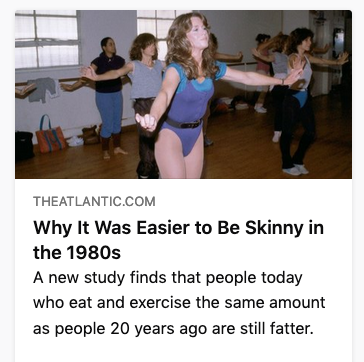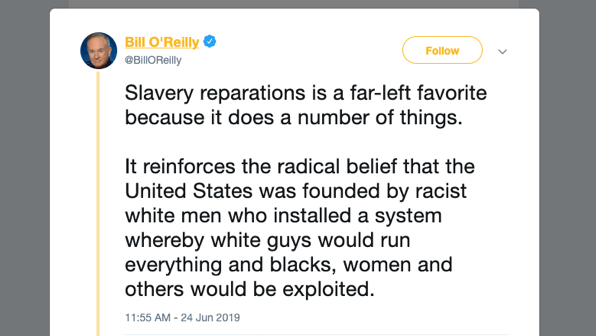In 1998, I went dove hunting with some pals from Dallas.
I wrote about it for my own amusement, and ran the piece on my web site at the time (the ancestor to Miscellaneous Heathen, which didn’t go online until two years AFTER this piece was written).
It’s fall again, and I realized that it’s utterly criminal that this little bit of fun has been offline for quite some time, so I present it here, again, for your amusement. Enjoy.
Lawyers, Guns & Money
Return of the Native: Wherein our Intrepid Texas Correspondent Rediscovers His Hunting Roots
I am part Cracker, though you wouldn’t know it to look at me. I grew up in Mississippi, where my family has lived for generations. I hunted, camped, and fished; I drove a pick-up truck to high school; I owned boots. It was something of an oddball combination, though, at least – certainly – to outsiders. Weekends might begin in a field west of town shooting at birds and end with dinner at the Country Club, all with the same assortment of bankers, lawyers, doctors, and real estate developers. There’s an odd sort of gentility to these things in the South, so it never struck me as odd that Larry Foote would drive his Porsche to both dove hunt and dinner, or that Cadillacs matched pickups at most expeditions.
Somehow, I lost much of this in college. I left for Alabama at 18 and promptly became a tortured (okay, mostly just drunk) intellectual type, perfectly willing to discuss the meaning of life or the existence of God until 4:30 in the morning during the week as long as the other side of the conversation was cute enough or there were drugs enough to make it interesting. Both if I was lucky. I stayed in Tuscaloosa most of the time, venturing home rarely, and lost – to some degree – a bit of the old-school Faulknerian whiskey-soaked hunting ambiance of my youth. I should have known, however, that this wasn’t to be a permanent state.
By 1994, I’d moved to Houston. Houston is hotter, flatter, and more muggy than anything in Alabama or Mississippi, but I fell in love with it anyway. The combination of international business, flabbergasting amounts of eighties-style oil money, and old-fashioned Texas-dialect Southernism agreed with me, and still does. Slowly, I noticed I was becoming more like home than I had been in Alabama, and I didn’t mind. My drawl returned with a vengeance, particularly with alcohol. I bought boots again. I drank local beer. So when a pal from Dallas invited me on a dove hunt – my first since high school, easily – it didn’t surprise me at all that I jumped at the chance.
What follows is a rough chronology. The participants were Patrick, a college pal who has ended up in Dallas married to a local; Dwayne, his brother-in-law; and Richard, his father-in-law. Both in-laws are attorneys; Patrick is an administrator with a local college in Dallas. The events transcribed occurred over August 31-September 1, 1998, and are represented here more or less accurately. As best I remember.
Monday:
12:30 Leave office. Drive to Academy Sports to purchase Hunting License I didn’t buy over weekend because wallet location became a problem; one must have photo ID for a hunting license in Texas.
1:00 Leave Academy. Express dismay to any listening deities at amazing process required to obtain state permission to shoot things from the air.
1:30 Arrive Hobby Airport. Attempt not to look suspicious carrying gun case into airport.
1:45 Check gun into loving arms of Southwest Airlines. Casually inquire as to insurance coverage for firearm.
2:50 Plane departs; order cocktail in response to somewhat exuberant toddler.
3:30 Arrive Dallas-Love Field. Encounter remaining members of hunting party. Wave goodbye to toddler with outstanding lung capacity.
3:50 Accidentally notice that my luggage – and gun – merrily riding the carousel for flight 119, not flight 34. Pounce on luggage while attempting to NOT step on aforementioned toddler.
3:55 – 4:15 Attempt, with 2 lawyers and a college administrator, to get shotgun, briefcase, and suitcase into already-capacity-loaded Pathfinder. Express wonder at the sheer volume of equipment required for 1-day hunting expedition.
4:20 Depart Dallas for wonderful downtown Brownwood, Texas. This will take 3 or 4 hours, so we stop for beer. Driver abstains. Lawyers and consultant do not, and continue to fail to abstain well into West Texas.
5:00 Remember, with college administrator, that Warren Zevon once sang of “lawyers, guns, and money.” Express pleasure that all three are present in at least token quantities, so no bad things can possibly happen.
6:00 All terrain for miles now visible. No meaningful trees present, though cactuses and scrub are plentiful. Toast landscape with beer.
7:00 Stop for restaurant suggestions at somewhat vague looking minute mart in Comanche, Texas. Elect younger lawyer to “work the clerk” for information re: culinary adventures in Comanche. Upon discovering all food in Comanche apparently unacceptable, purchase snacks at said store.
7:05 Convenience Store declared to be “lucky” by younger lawyer. All parties purchase Lotto tickets.
Dialog:
Younger Lawyer: “Has anybody won here yet?”
Karla-Faye-Tucker-lookalike-Clerk: “This is Comanche.”
This, apparently, explains it all.
7:45 Arrive Brownwood, Texas. Locate Tuesday’s rendezvous point (the Section Hand Restaurant and Boot Store). Select alternative cuisine for dinner.
8:00 Narrowly avoid Golden Corral dinner in favor of Blue Cactus. Everything is still fried, but at least a little spicier. And they serve beer. In theory. Waitress unable to serve beer for reasons unspecified but probably linked to age, so manager does. Several times.
8:45 Locate liquor store for purchase of after-dinner cigars.
9:00 Adjourn to Best Western poolside lounge area, still blissfully unaware of stock market gyrations. Enjoy cocktails and hunting stories. Return to hotel room for A&M v. FSU football. Note that all is right in the world, as the Trinity of Hunting, Football, and Cocktails are present. Express belief that this trumps earlier hat trick of Lawyers, Guns, and Money.
9:30 Channel change during commercial leads to discovery of stock market gyrations. Mix another drink. Remind self that investments are long term in nature.
10:30 Remind self again that investments are long term in nature. Advised by attorney to mix additional beverage.
11:45 Sleep.
Tuesday
05:00 Annoyingly cheery clerk delivers wake-up call. Stumble into clothing, gather firearms, and reload truck. A total of 7 degrees still required to shoehorn everything into vehicle. Collective need for coffee reaching fever pitch.
05:30 Arrive at Section Hand restaurant. It does not open until 0600. They are, however, serving coffee.
05:40 Purchase local newspaper.
05:42 Complete local newspaper. Opt for second paper.
05:50 Over discussions of market with other hunters, drink at least as much coffee as you did beer the night before. This is viewed as karmic balance, at least in terms of hangover reduction.
06:15 With addition of biscuits, sausage, eggs, and grits, begin to feel almost human despite the hour. Lawyers and administrator agree. More coffee administered.
06:35 Caravan of well-armed personnel leaves Section Hand restaurant for parts unknown. Guide wonders out loud which of 2 waitresses he should give his cell phone number to for late arrivals; another local opines “It don’t matter; they’re both stupid.”
06:45 Paved road ends. Caravan continues.
06:50 Now officially in the Middle of Nowhere. Gather ammunition (50 rounds) for first phase of hunt. Privately certain this is more than enough.
07:00 Discover Timberland boots not nearly as waterproof as advertised. Vow to never eschew more thematically correct Red Wings again.
07:10 Select position on east fence row under small mesquite tree.
08:00 Return to truck for additional ammunition with 1 for 10 record. College administrator by this point certain his initial stash of shells loaded with blanks, a theory shaky at best as same shell pool fueled aforementioned 5-bird hour.
09:30 Birds wisely decide field to be questionable. Appear to dining elsewhere. This, combined with additional supply shortages (e.g., shells) send hunting party back to hotel, 19 birds in hand (Sr Lawyer: 9; Jr Lawyer: 4; Consultant: 5; Administrator: 1). An average of three boxes of shells per hunter were consumed, however.
10:00 Return to hotel for much needed shower and nap.
12:45 Depart hotel for Wal-Mart for additional provisions. Attempt to not be stereotypes of city folk in Brownwood Wal-Mart almost certainly a failure, though markedly more successful than the prior year, when Senior and Junior Lawyers and Administrator made trip in Jaguar.
1:30 Return to Section Hand to sample lunchtime offerings and attempt to corner market on coffee. Chicken-fried steak deemed most appropriate meal.
2:45 Guide rendezvous at Section Hand; depart again for field after much discussion of temperature (now hovering in mid-90s). Provision check reveals almost certainly enough shells, beer, and Gatorade.
3:00 Arrive at same field. Guide informs hunting party that birds are probably 2 hours away, if tradition holds. Guide departs.
3:05 Upon hearing this news, junior lawyer strips to boxers and hunting boots and settles in the sun to drink beer and review Wall Street Journal.
3:30 Birds arrive, apparently hoping for a sneak attack. Junior lawyer continues mode of dress, perhaps not the best for running through tall grass and weeds to retrieve birds.
4:00 MORE birds arrive. Logistical problems ensue. Am unable to return to selected (and shady) post after bird retrieval due to continued bird overflights and subsequent retrievals. Crouching in weeds amid the field becomes de facto post despite lack of cover.
4:30 After taking a double, note that limit for group is likely looming large. Suggest inventory. Creative accounting brings group total to 59, though this fails to include the 9 birds total lost in brush and the 5 or so simply discarded as uncleanable due to unfortunate proximity to firearm barrel. Shotgun shell consumption at this point no longer worth examining. Express dismay at number of birds still eating in far end of field, occasionally fluttering up several hundred at a time.
5:15 Load truck. Again.
6:00 After gas, food, and beer, depart Brownwood. Consultant and lawyers resume lack of abstention.
10:30 Arrive Dallas. Purchase antihistamines to make up for squatting in weeds all day.
10:45 Arrive Patrick’s home. Collapse on couch after cursory hello to his lovely wife, who finds this all terribly funny.





